Our Verdict
This elaborate and elegant strategy adventure is one of the best puzzle games in years.
PC Gamer's got your back
What is it? A first-person puzzle strategy adventure set in a mysterious mansion.
Developer: Dogubomb
Publisher: Raw Fury
Reviewed on: Intel i7 9700K, RTX 4070 Ti, 16GB RAM
Multiplayer? No
Steam Deck: Playable
Link: Official site
I love Blue Prince so much I'm going to spend the next 1,500 words or so telling you as little about it as possible. Unraveling its many mysteries and solving its multitude of puzzles—several of which I'm still working on even after finishing the game—is best done if you go in with nearly no information. Don't watch videos. Don't Google solutions. Don't even finish reading this review. Just go play it.
OK, fine, finish reading this review. Lucky for us it's easy to write about Blue Prince without spoiling it because it's so original and intricate that just explaining how it all works will take up most of this page. It's part first-person adventure, board game, roguelite, deckbuilder, strategy, exploration game, and puzzler, all packaged up within the walls of the most interesting house I've ever set foot in. Step inside and you'll discover one of the best puzzle games in years.
House of cards
Congratulations, homeowner: you've inherited a sprawling mansion from an eccentric relative, but to prove you're worthy of such a gift you have to complete a task: explore the 45-room manor, then find and enter its hidden 46th room.
The tricky bit? You're building the mansion yourself as you explore it. Start in the foyer, where you see three doors leading in three different directions. Click on a door handle and you're presented with a choice of three room cards: you might see a kitchen, a den, and a bedroom; or perhaps more exotically, a cloister, an observatory, and an aquarium.
Whichever room of the three choices you pick (or draft, as I'll call it from here on), that's the room you'll find when you open the door.
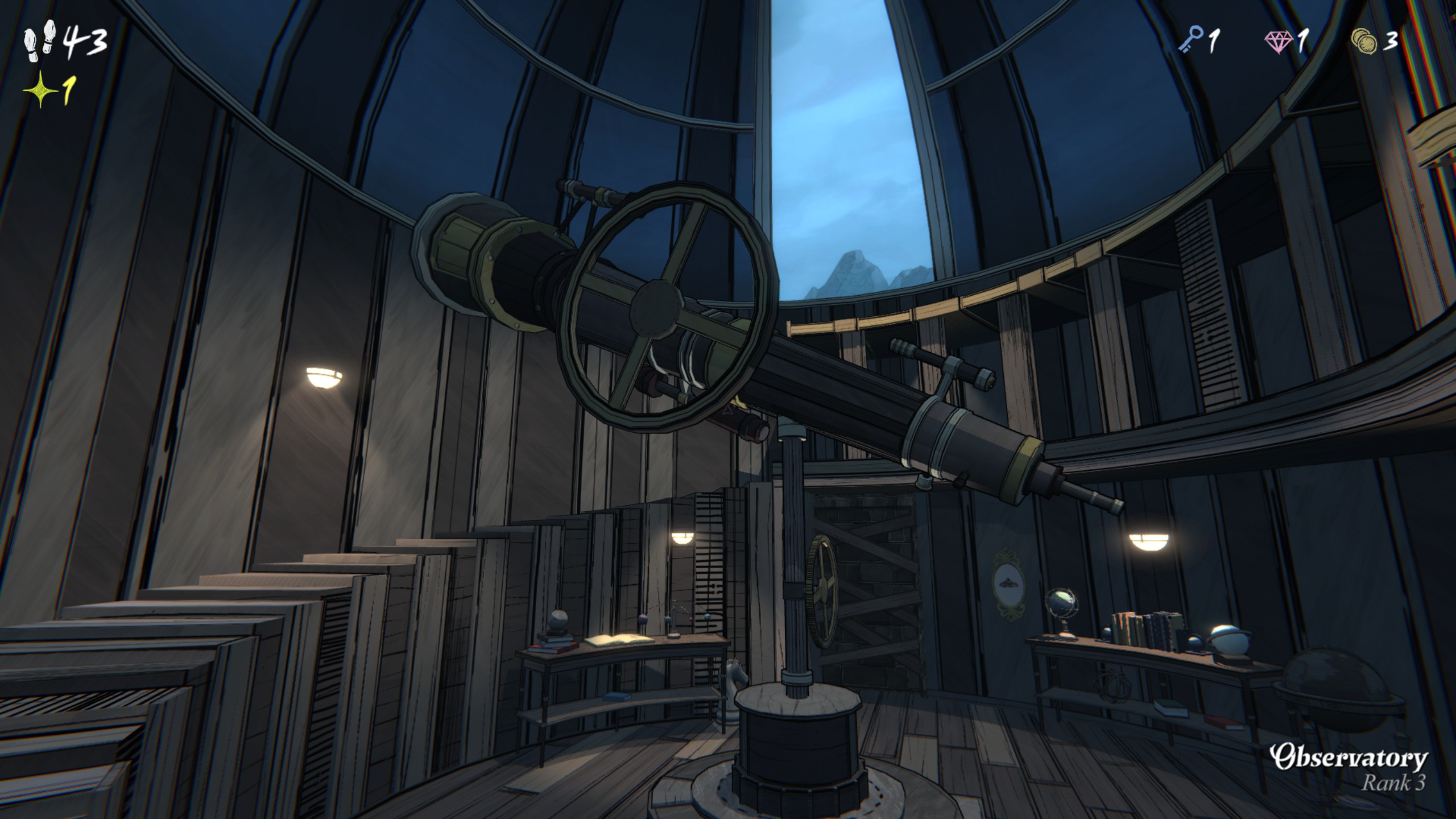
The house is laid out in a grid of five wide by nine deep, giving you space for those 45 rooms you'll draft, one by one. Every room has different attributes, some positive, some negative, some a bit of both. A darkroom won't let you see which three cards you're about to draft, for instance, while a drawing room, appropriately, will let you re-draw the rooms if you're not happy with what you've drafted. Draft a great hall and you'll find lots of doors—but they're all locked.
As you travel you collect resources: keys for those locked doors, gems needed to draft specialty rooms, and coins to spend on items in certain places. You can also find precious gear like a magnifying glass to closely examine documents or a metal detector to help you find extra coins and keys.
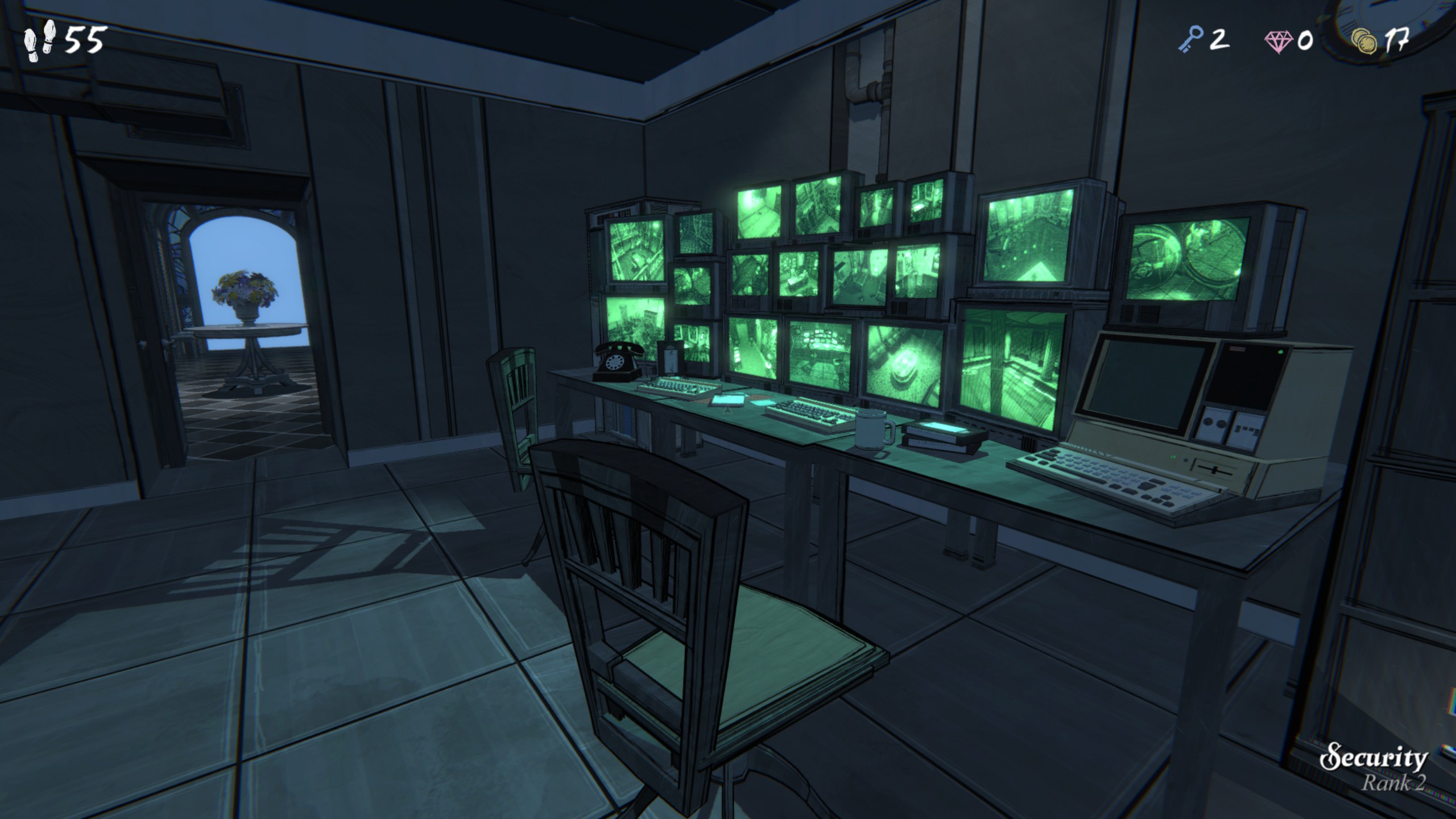
Finding an item can change your entire run in an instant. Didn't you see a few chests a while back but you didn't have the keys to unlock them? And now you've found a sledgehammer… The room cards, the resources, and the items you find give Blue Prince a wonderful board game feel.
Doorways are important when drafting rooms since you're trying to build a walkable path through the grid to get as deep into the mansion as you can: draft too many rooms with no exits and you won't be able to proceed. Just about every draft requires at least a few moments of thought, and sometimes a great deal of strategic debate.
Should I draft a closet because it has useful items inside even though it's a dead end? Or should I choose a hallway because it means I can get a little further, even though it won't contain anything useful?
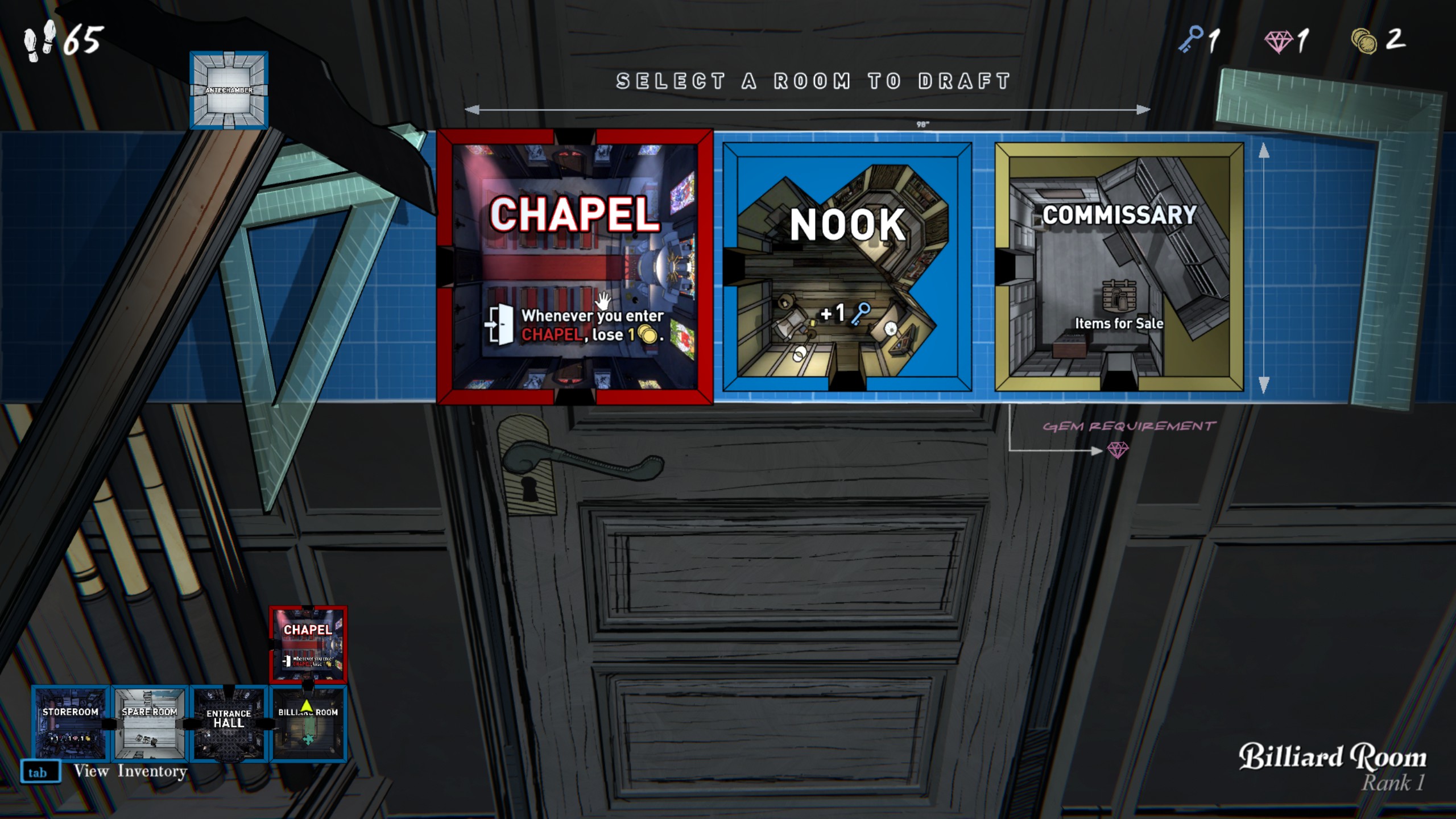
The trickier bit: you begin each day with a total of just 50 steps, and each time you pass through a doorway you spend a step. That's where the real strategy comes into play.
Say you ran into a locked door 11 steps ago, but now you've found a key—is it worth spending another 11 steps to backtrack to that door, or should you keep moving ahead? In some runs I've spent ages looking at the map of the house I've built and carefully counting out my route as my number of total steps dwindle. Getting to exactly where you need to be just as you're about to run out of steps is exhiliarating—or heartbreaking, if you don't quite make it.
Because there's one more tricky bit in Blue Prince, the trickiest bit of all. Run out of steps and the mansion completely resets. The room cards are shuffled, everything you've collected vanishes, and you start over the next day with empty pockets and a blank grid to fill. You've still got something, though: your knowledge from previous runs that you can use to make it further this time.
Open house
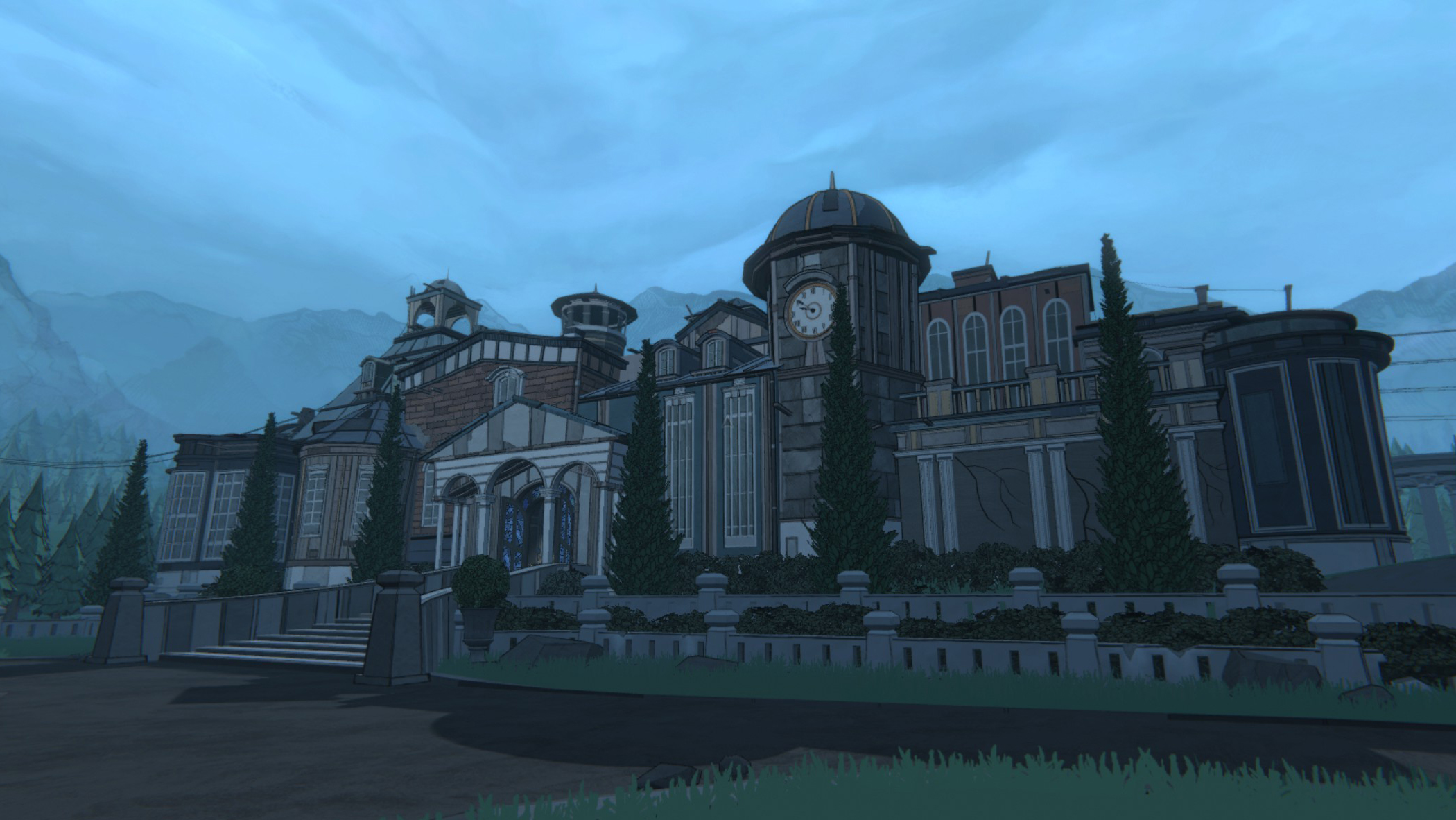
With those systems Blue Prince would all work wonderfully as a resource-based strategy game, managing your step count and keys and gems, but then there's all the amazing and elegant puzzles, none of which I'll spoil here.
A few puzzles are contained to certain rooms and you'll encounter them repeatedly, like a math-based dartboard puzzle in the billiards room and a logic puzzle in the parlor, but most of Blue Prince's best puzzles, the real puzzles, the ones you'll keep thinking about when you're not even playing the game, are spread throughout the mansion.
Since the house is different every time you build it, you won't see these puzzles all at once but over multiple runs, like finding a code on Day 3 but not realizing what it's for until Day 11. So many times during Blue Prince I'd come across a portrait or a statue or a note and know it meant something, but not understand its significance until much later—or, I'd realize its significance immediately because it pertained to something I'd seen much earlier.
I've had entire runs dedicated to drafting a specific single room because I'd finally figured out how to put it to use properly.
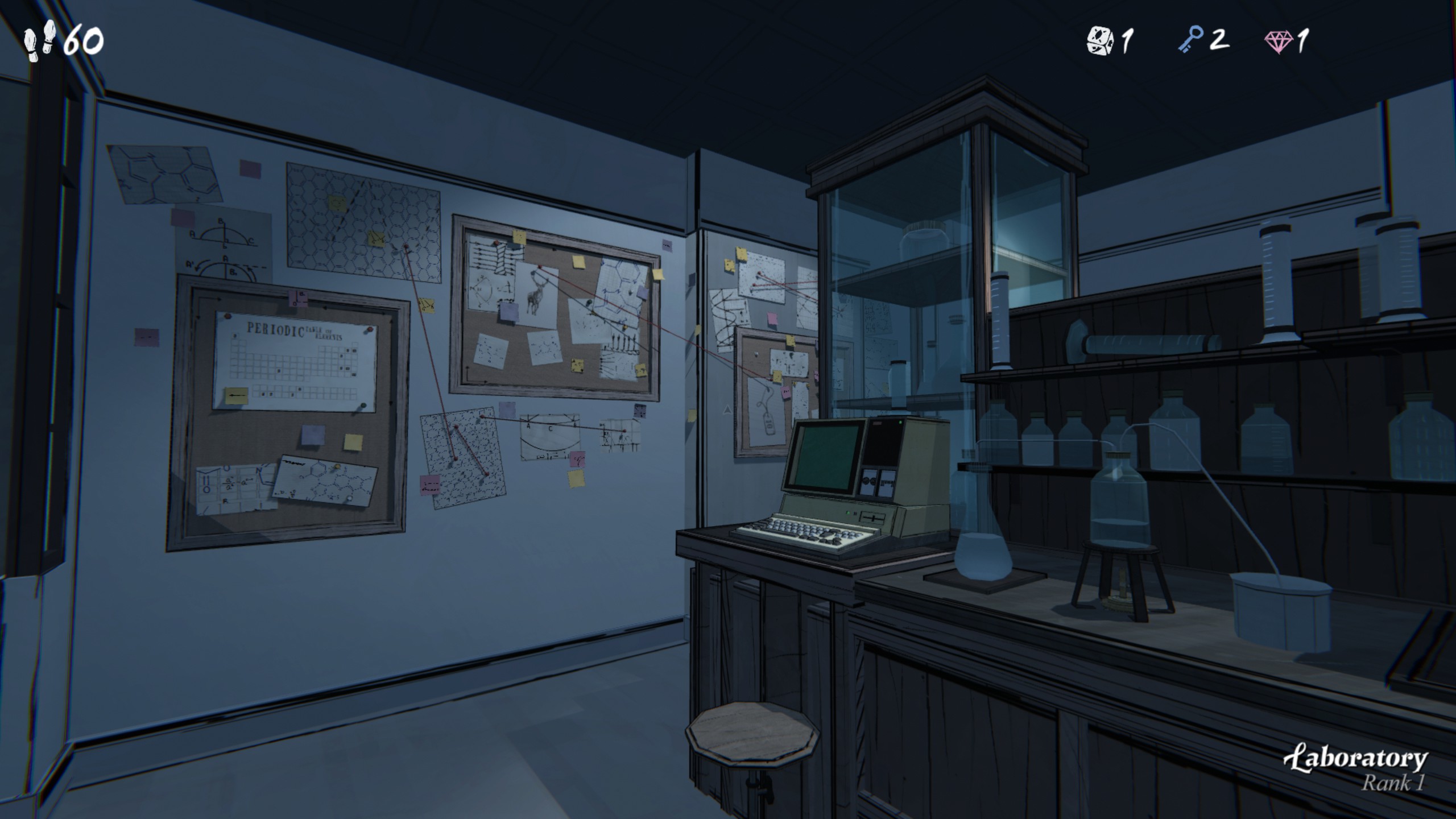
I've never underlined something in a review before, but this will make a certain type of gamer out there thrilled to hear: You will need a pen and paper. I filled over a dozen pages on my pad with notes, diagrams, names, dates, doodles, and codes. I've got the 45-room grid of the mansion drawn on two separate sheets of paper tracking two different puzzle elements that involve most of the building. If I owned a corkboard it would be covered with pictures and notes connected by red string.
If you love keeping careful track of dozens of little details like a detective... Blue Prince is pure bliss.
I've had so many great "Eureka!" moments (though mine are usually expressed as "Holy shit!") where I spotted something for the first time and then flipped frantically through my notes because I'd seen something related to it in a different room on an earlier run, maybe even days earlier.
If you love long, drawn out puzzles, poring over notes, keeping careful track of dozens of little details like a detective—Her Story, The Case of the Golden Idol, Return of the Obra Dinn—Blue Prince is pure bliss.
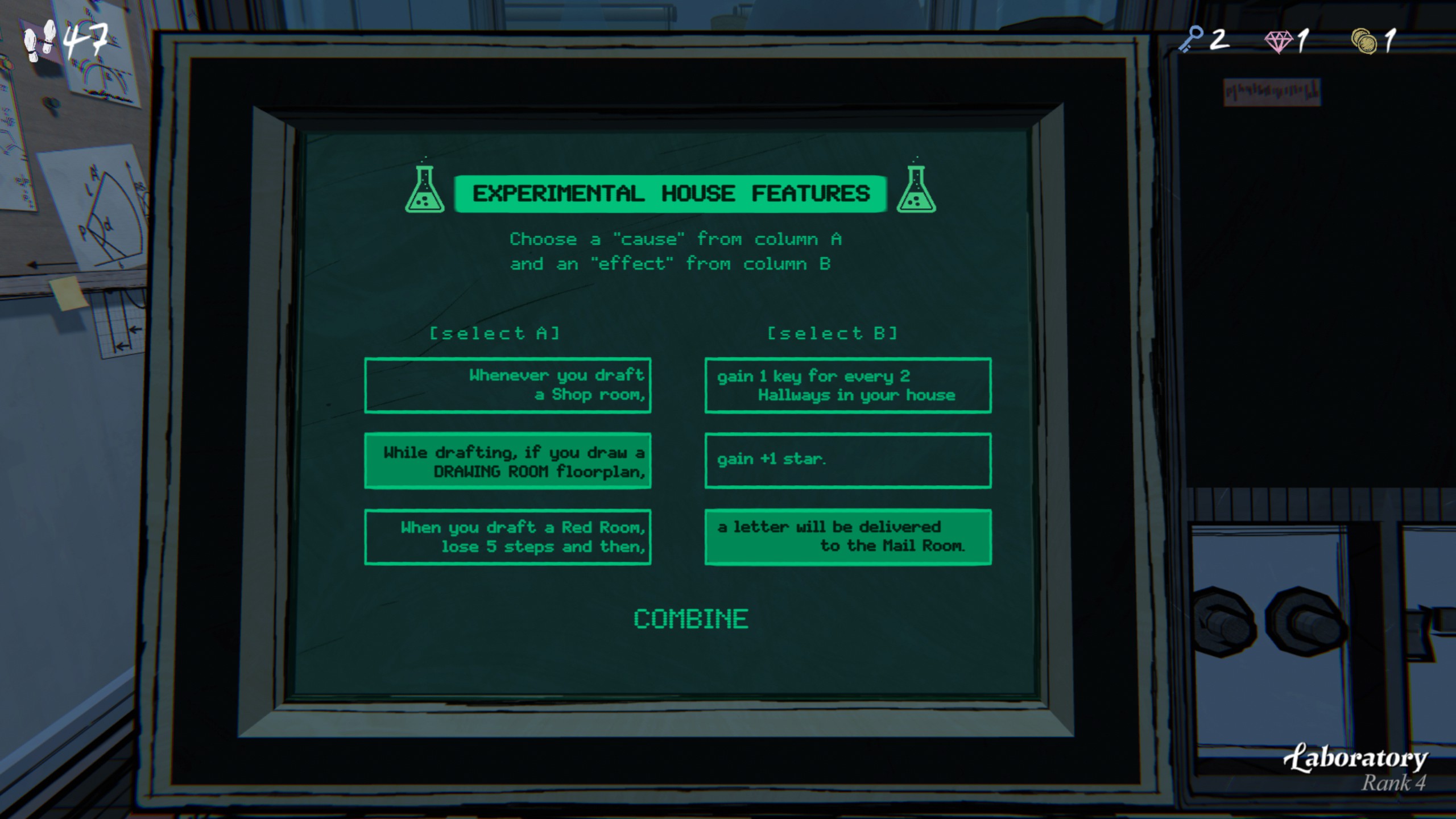
One puzzle—and again, I won't spoil it—took me most of the game to figure out. I knew what I was seeing in the mansion was part of some sort of puzzle immediately, but it was days later (real days, not in-game days) when I finally figured out how that puzzle worked, and then it took a few more days to figure out how to use the solution I'd found.
The fact that this sprawling puzzle works despite the house having a different configuration each day demonstrates the incredible craftsmanship and elegance developer Tonda Ros of Dogubomb put into the eight-plus-year development of Blue Prince.
Home owner
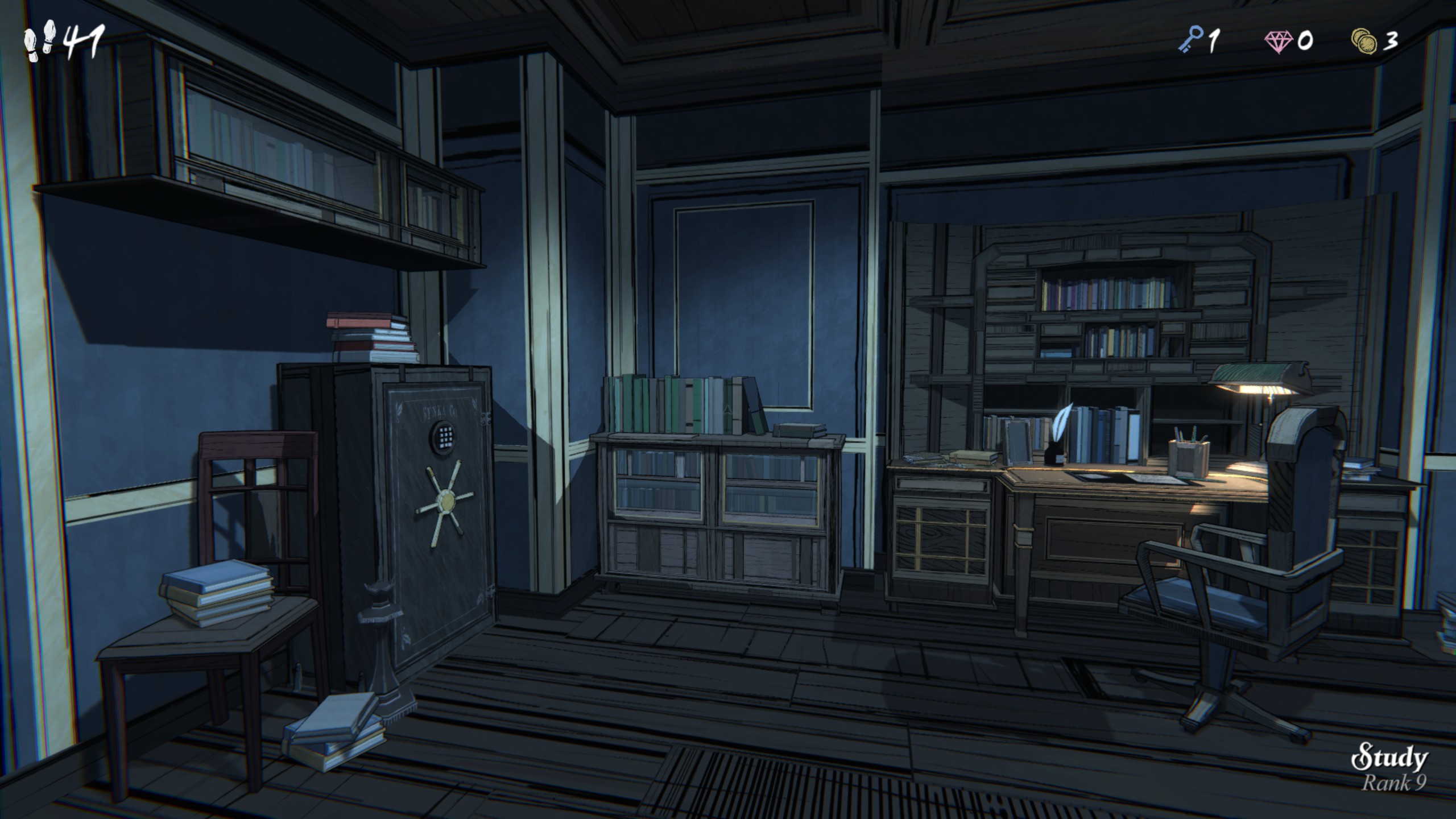
Just because the house resets each day doesn't mean you aren't still shaping it for future runs. One of the most satisfying feelings in Blue Prince is realizing "I'm not going to get to the 46th room today, but I've set up tomorrow, or even the day after, to be a great run."
It feels great to bring a little permanence to something that's always changing.
Maybe that means drafting a mailroom, which will have a package filled with goodies delivered to it the following day, or maybe it means leaving a critical item for yourself, like a special key, in the coat check so that you'll be able to retrieve it the next time you draft that room. Prepping an upcoming run for success is like playing a co-op game with your future self.
What's especially exciting is when you get to make a permanent change to the mansion, one that will remain even when the house is reset: finding your way to the other side of a gate that's always been locked, for example, but once opened will remain that way forever. A few special rooms will let you change the attributes of other rooms, and once altered they'll remain that way until you adjust them again. Other systems let you apply upgrades or overhauls to how certain rooms work. It's a thrill to bring a little permanence to something that's always changing.
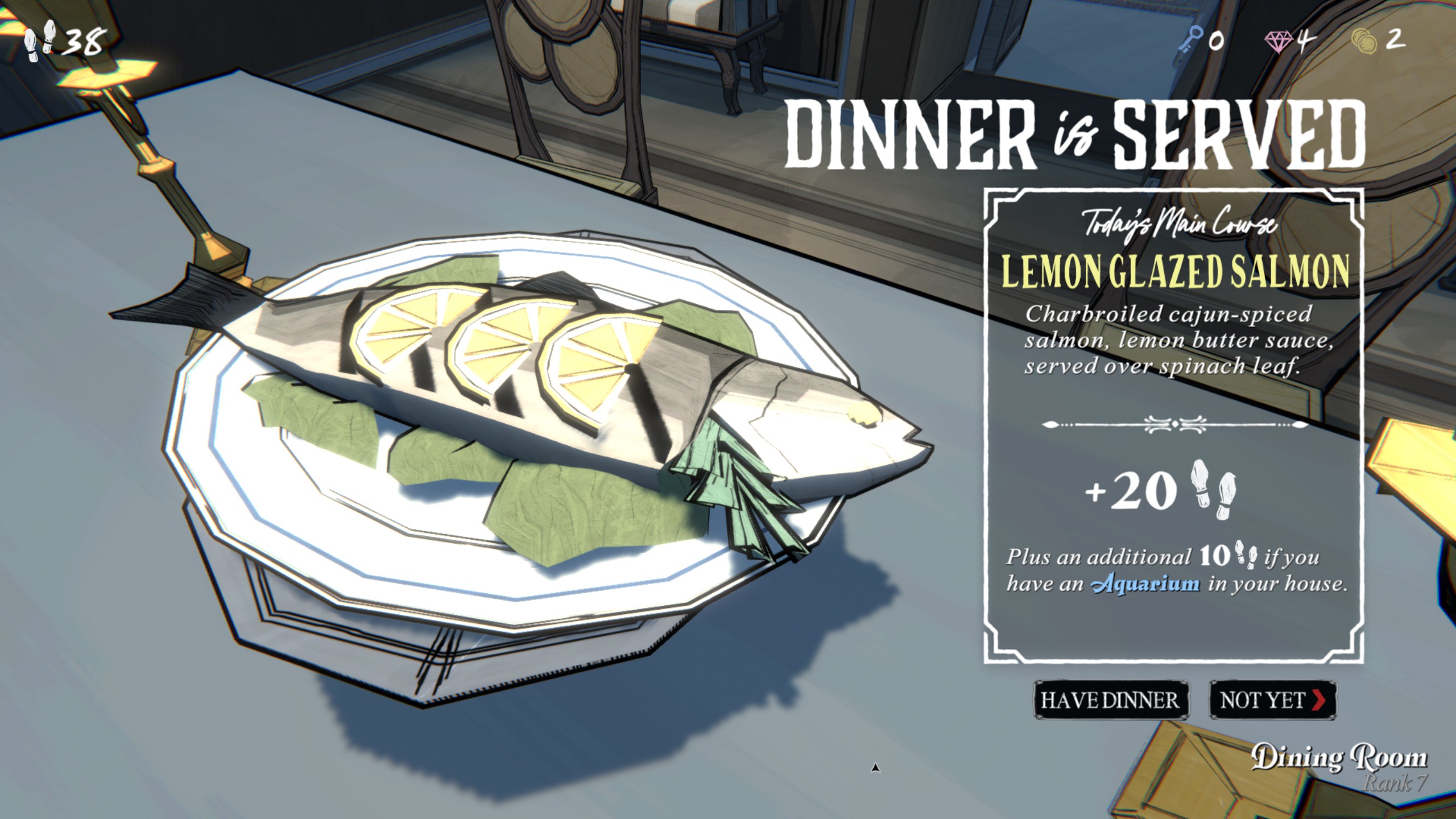
You can even eventually start making permanent changes to yourself, altering your starting condition by, say, increasing your daily step count or even starting off each day with a few extra coins. There are several systems that let you adjust the odds of certain types of room card being drawn, so you'll be able to draft the cards you like more often and make the ones you don't like less common.
The longer you play, the more days that pass, and the deeper you explore, the less the mansion feels like just a random collection of rooms. It begins to feel like something that is yours, that you're in control of. By the time I finally entered the 46th room, I truly felt like I'd earned it. I was the rightful heir, damn it. It really was my house now. And like I said, even finishing the game left me with plenty more puzzles to solve. I'm not done with Blue Prince yet, not by a longshot.
Home sweet home
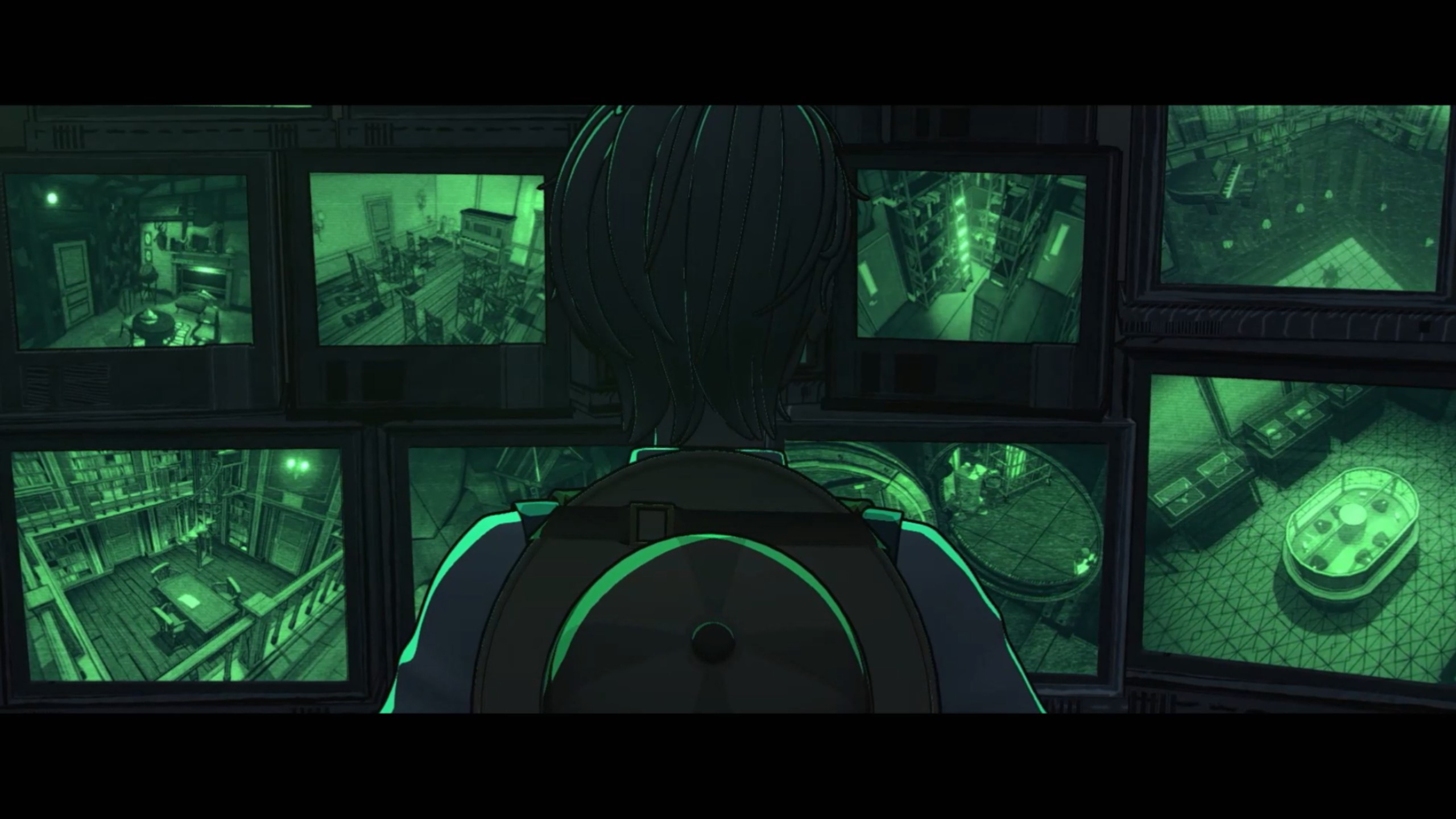
You occasionally have to contend with the foul sting of RNG in that house: I've had plenty of stinky runs where I deadended quickly or my goal was rebuffed by a bad draft or rotten luck. Sometimes a run will shower me with coins but give me nothing to spend them on, or I'll face locked doors at every turn but never find the keys to open them.
But that's pretty rare, and I never found bad runs all that frustrating. More often, it felt like the house was on my side, giving me a shovel to go with the treasure map I'd found, or blessing me with just the right combination of doors and hallways to make it as deep into the mansion possible. There's even a room where you can bribe a shrine for a bit of extra luck over multiple future runs. You just have to find it (and find the coins to pay for it).
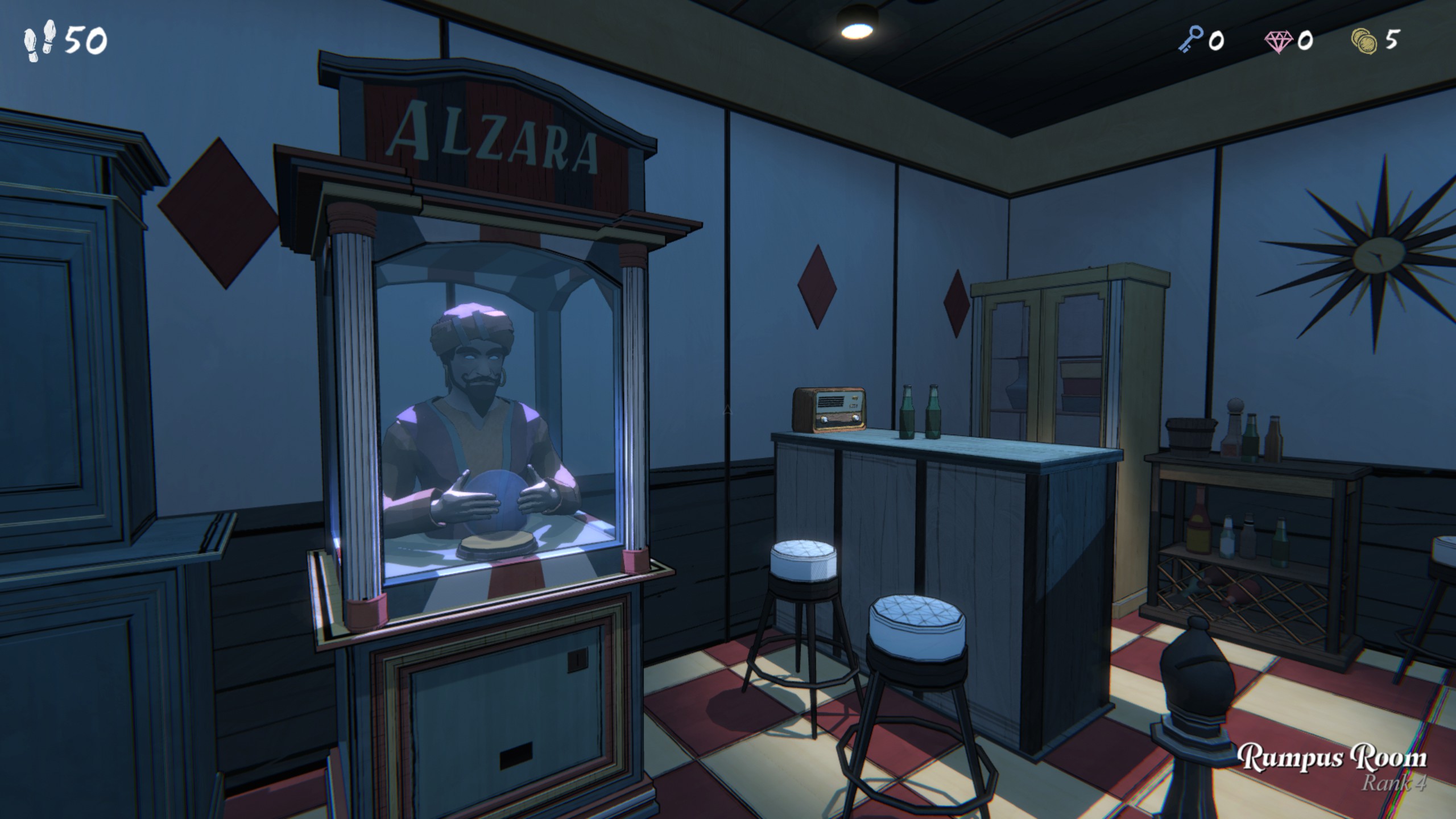
You don't need anyone's help. You'll figure it all out yourself.
I'll repeat this: Don't Google puzzle solutions. Don't watch walkthroughs or look at guides if you can help it. They'll be out there, but I'll preface any I write with this same motivational speech:
Blue Prince can be challenging and perplexing and you may spend days wrestling with some of its puzzles, but trust me, you don't need anyone's help. You'll figure it all out yourself and you'll feel great when you do.
Take it from me: It took me about 25 hours, but I made it into the 46th room without access to any guides or hints simply because none existed when I played it, and I'm far from the sharpest tool in the mansion's shed. (Example: I first played the demo over a year ago, but only last month did I finally realize "Blue Prince," a game about building a house, was a pun on "blueprints.")
So grab a pen and paper. Lower the lights. Sit back, relax, and take your time. Draft your rooms, count your steps, and let the mysteries of the mansion slowly unfold to reveal one of the best puzzle games in years.
This elaborate and elegant strategy adventure is one of the best puzzle games in years.

Chris started playing PC games in the 1980s, started writing about them in the early 2000s, and (finally) started getting paid to write about them in the late 2000s. Following a few years as a regular freelancer, PC Gamer hired him in 2014, probably so he'd stop emailing them asking for more work. Chris has a love-hate relationship with survival games and an unhealthy fascination with the inner lives of NPCs. He's also a fan of offbeat simulation games, mods, and ignoring storylines in RPGs so he can make up his own.
You must confirm your public display name before commenting
Please logout and then login again, you will then be prompted to enter your display name.


